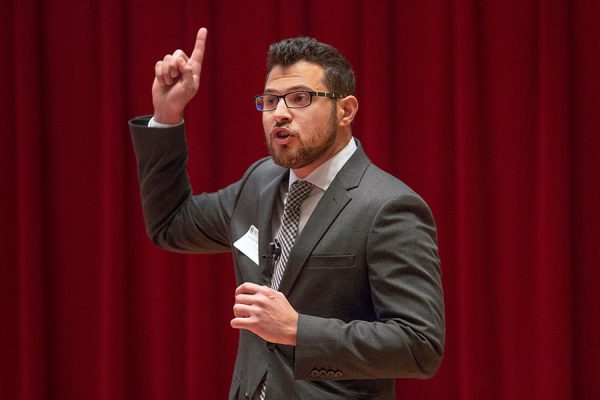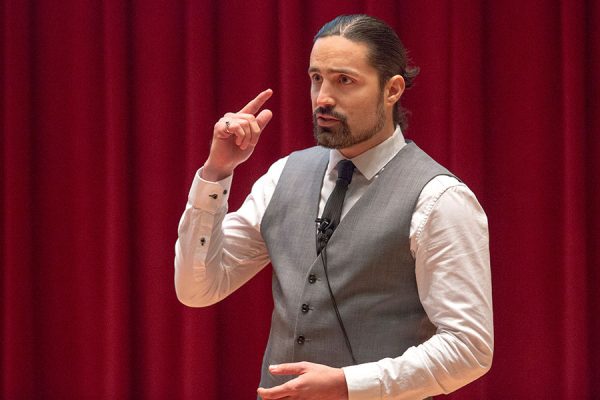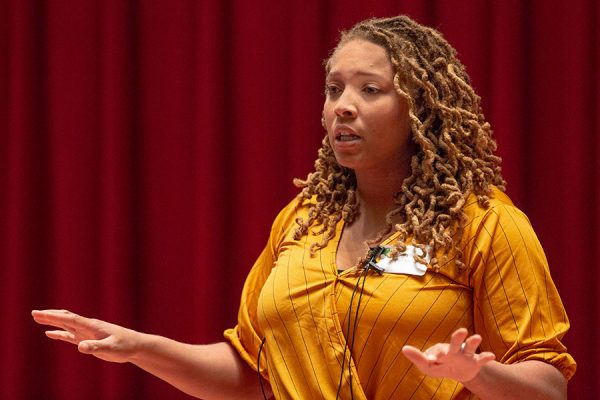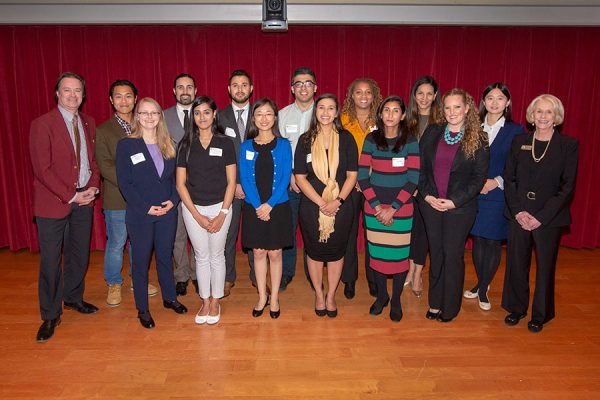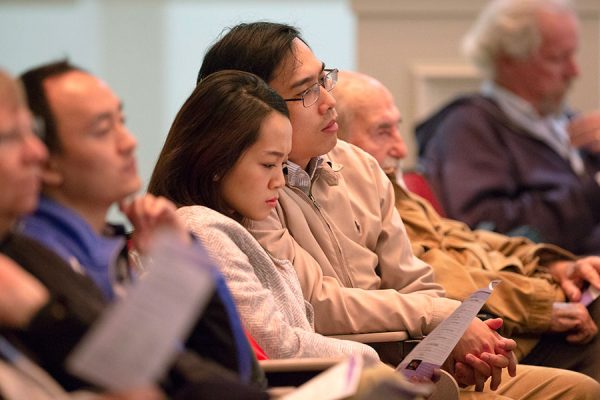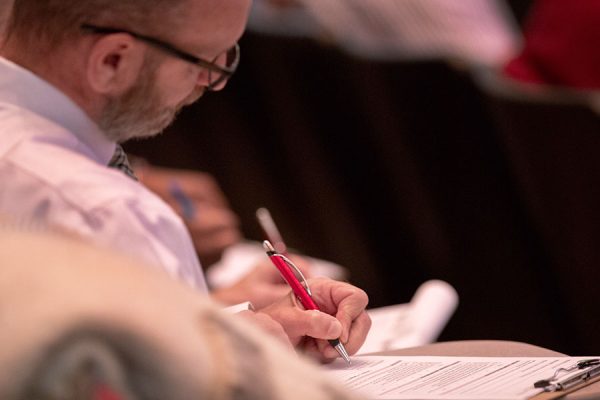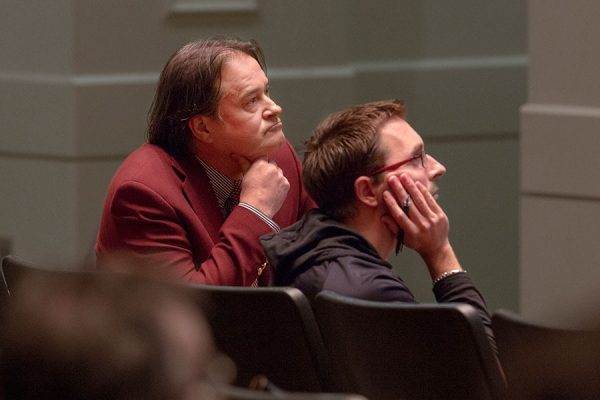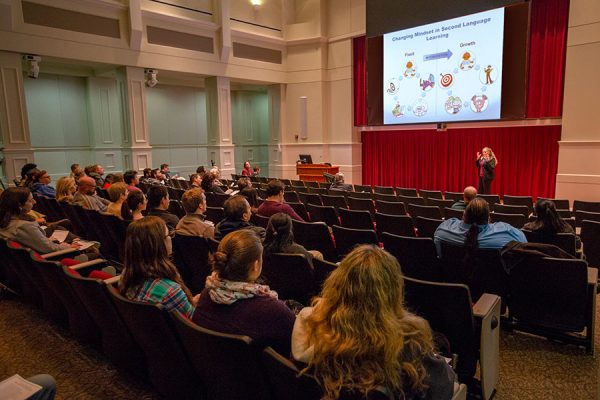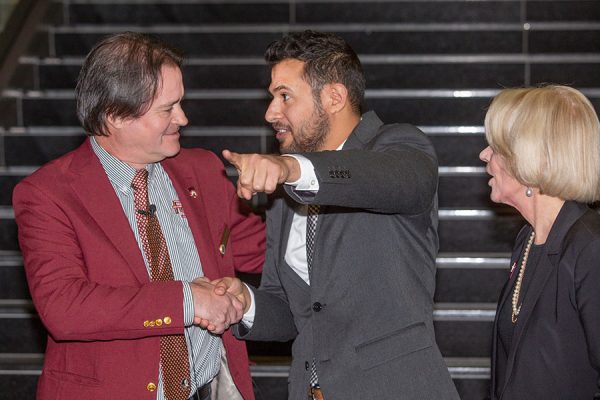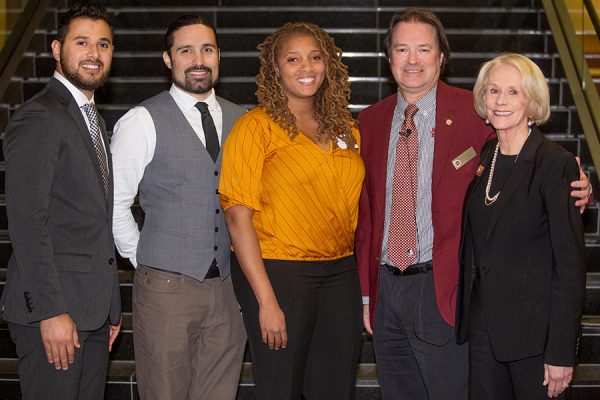
Florida State University doctoral student Eve Humphrey left judges and attendees with a smile as she closed her Three Minute Thesis speech at the annual competition, Tuesday, Nov. 27.
“When under pressure, just keep swimming and getting it on,” she said.
Humphrey, a biological science student, took home the $1,000 prize and will represent Florida State at a regional competition in Knoxville in February.
“I think there’s a big disconnect between the scientific community and the community in general,” Humphrey said. “Particularly for underrepresented groups, I think it’s important for us to show our faces and be able to communicate in ways that get people excited and interested in the research we’re doing.”
Humphrey’s prize-winning presentation, “Under Pressure: Stress and Coloration as Mediators of Behavioral and Physiological Variation,” highlighted how differences within and between populations of Least Killifish and Eastern Mosquitofish influence their behavior, reproduction and stress responses with predators.
As she put it, “essentially, how the underdogs of the world deal with their adversaries.”
The Three Minute Thesis competition, which began at the University of Queensland in Australia in 2008, charges graduate students to explain their thesis work in a compelling three-minute speech. The goal is for participants to effectively explain their research, which at times can be very complex, in plain language.
“It’s such a joy to see how brilliant the students are,” said Mark Riley, dean of The Graduate School. “Letting them explain what they’re doing in this format is a great way to let everyone else know how they’re pushing the boundaries of knowledge forward.”
Florida State’s 2018 Three Minute Thesis competition attracted 33 participants. A team of judges watched the presentations and selected 14 finalists who received additional critiques, guidance and rehearsal before the big night.
Riley said students have said how their participation in the competition has helped them perform successfully in job interviews and explain other research projects in an understandable and enjoyable format.
Bruno Chiurliza, a Ph.D. student in the Department of Psychology, won second place for his presentation on the effectiveness of providing gun locks in suicide intervention. He received a $750 prize.
Anwer Al-Kaimakchi, a graduate student studying civil and environmental engineering, earned $500 for the “People’s Choice” award. His research focused on making bridges safer by studying the flexural performance of stainless steel precast prestressed concrete girders.
“I enjoyed hearing about how people are changing the world, whether it was in psychology, education or biophysics,” Humphrey said. “Their ability to explain what they do and give us the opportunity to jump into their world for a few minutes was really cool.”
Additional finalists in the competition included:
Sylvia Bhattacharya, Electrical & Computer Engineering
Diana Carbonell, Educational Psychology & Learning Systems
Gokila Dorai, Computer Science
Alyssa Henderson, Physics
Simeng Li, Civil & Environmental Engineering
Tianhan Liu, Physics
Carla Parades, Educational Leadership & Policy Studies
Hamidreza Rahmani, Molecular Biophysics
Rebecca Turk, Teacher Education
Pengpeng Wang, Statistics
Sarah Wood, Psychology
The Graduate School plans to host a similar competition for master’s level students in the spring called “Masters in Four.”
